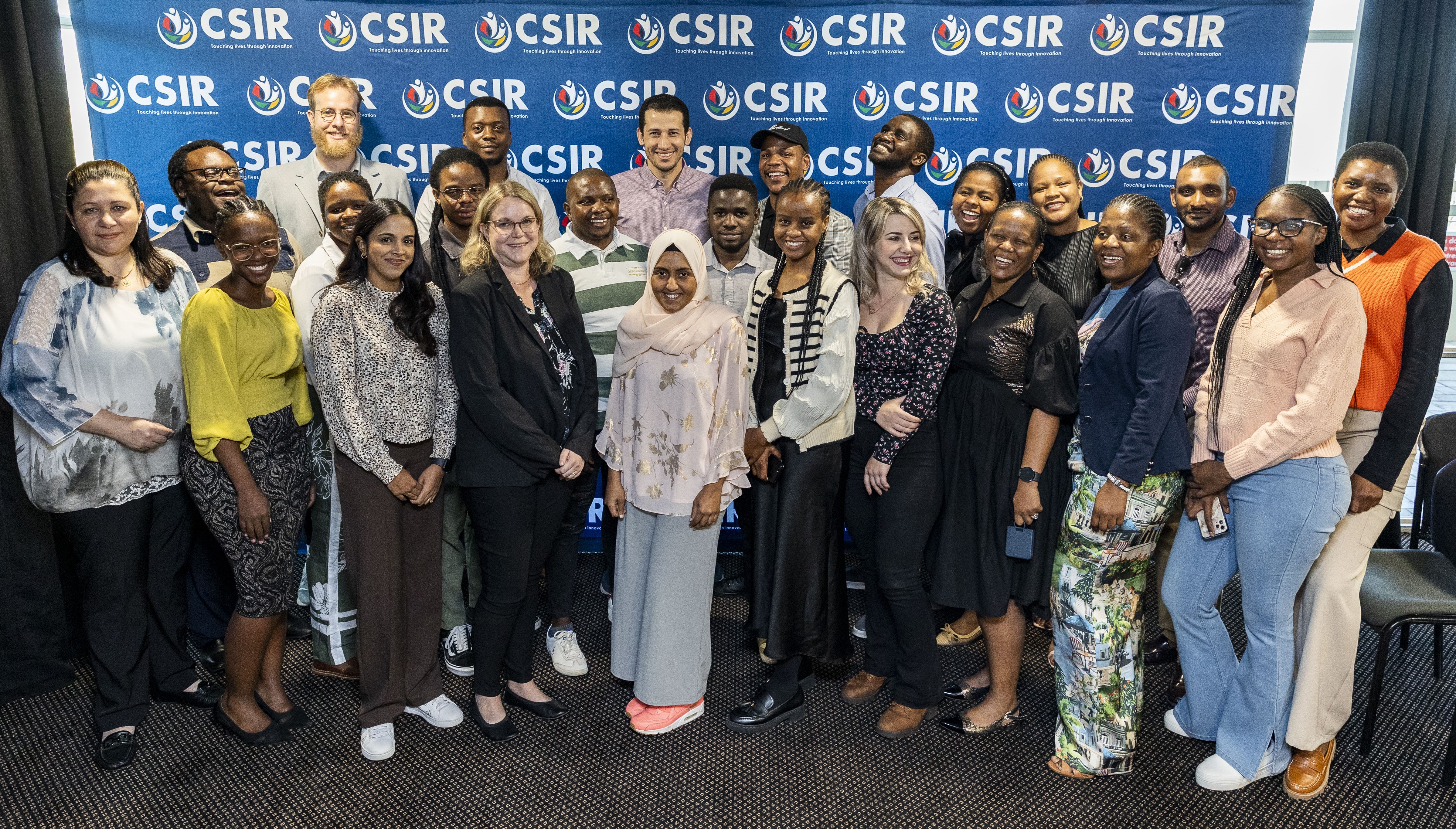Twenty-five graduate from CSIR’s biomanufacturing training programme
The CSIR’s African Biomanufacturing Workforce Training and Skills Development Programme conferred certificates to 25 participants who completed training in biomanufacturing technologies on 23 May 2024.
Participants were drawn from academic institutions, small, medium and micro enterprises, industry organisations within the biomanufacturing sector and other research councils in Botswana, Egypt, Kenya, Malawi, South Africa, Tanzania and Zimbabwe.

The CSIR’s African Biomanufacturing Workforce Training and Skills Development Programme conferred certificates to 25 participants who completed training in biomanufacturing technologies on 23 May 2024.
Participants were drawn from academic institutions, small, medium and micro enterprises, industry organisations within the biomanufacturing sector and other research councils in Botswana, Egypt, Kenya, Malawi, South Africa, Tanzania and Zimbabwe.
Speaking at the event, Dr Santosh Ramchuran, Chief Researcher of Bioprocess Technology Development, said, “On the African continent, the expertise and skills in hands-on biomanufacturing are limited, and the goal of these bioprocess training initiatives is to bridge the gap between academia and industry as wells as upskilling of staff that are currently employed in this sector. This human capacity initiative will create distinctive competencies in biomanufacturing, which are critical for building and enhancing technology localisation.”
The bioprocessing technologies course curriculum includes upstream bioprocess development, downstream processing, protein purification and formulation, along with hands-on training across all unit operations.
Lara Kotzé-Jacobs, Project Manager within CSIR Future Production: Chemicals, remarked, “Participants’ feedback indicates that the course content and the hands-on experience offered at CSIR facilities enhanced their biomanufacturing skills. Furthermore, the two-week virtual theoretical lessons followed by the two-week hands-on training at the CSIR campus in Pretoria created a good balance between work and the training programme.”
“A key aspect of this programme is to provide hands-on training and skills development that will enable local manufacturing of biologics, vaccines, recombinant proteins and therapeutics. Moreover, this programme is aligned to a number of initiatives that are focused on establishing vibrant biomanufacturing industries on the African continent,” Dr Ramchuran says.
As part of this training programme offering, a course in vaccine production technologies is scheduled to start on 1 July 2024.

of the CSIR’s African Biomanufacturing Workforce Training and Skills Development Programme.


